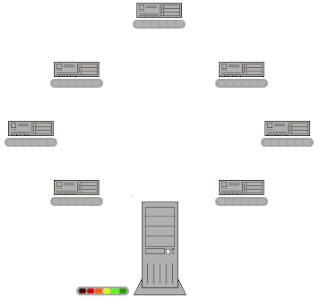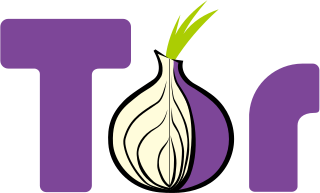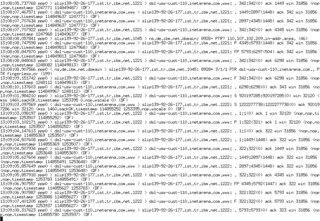
BitTorrent is a communication protocol for peer-to-peer file sharing (P2P) which is used to distribute data and electronic files over the Internet.

The Pirate Bay is an online index of digital content of entertainment media and software. Founded in 2003 by Swedish think tank Piratbyrån, The Pirate Bay allows visitors to search, download, and contribute magnet links and torrent files, which facilitate peer-to-peer (P2P) file sharing among users of the BitTorrent protocol.

Demonoid was a BitTorrent tracker and website that included file-sharing related discussion forums and a searchable index for the tracker. The site underwent intermittent periods of extended downtime due to the occasional need to move the server, generally caused by cancellation of ISP service due to local political pressure. There are reports of its founder Deimos passing away in September 2018 and the future of the site is currently uncertain.
A seedbox is a remote server hosted in a high-bandwidth data center used for the safe uploading and downloading of digital files. These bandwidths range from 100Mbit/s to 10Gbit/s. After the seedbox has acquired a file from a P2P network, persons with access to the seedbox can download the file to their personal computers anonymously.

Tor is free and open-source software for enabling anonymous communication. The name is derived from an acronym for the original software project name "The Onion Router". Tor directs Internet traffic through a free, worldwide, volunteer overlay network consisting of more than seven thousand relays to conceal a user's location and usage from anyone conducting network surveillance or traffic analysis. Using Tor makes it more difficult to trace Internet activity to the user: this includes "visits to Web sites, online posts, instant messages, and other communication forms". Tor's intended use is to protect the personal privacy of its users, as well as their freedom and ability to conduct confidential communication by keeping their Internet activities from being monitored.

RetroShare is a free and open-source peer-to-peer communication and file sharing app based on a friend-to-friend network built on GNU Privacy Guard (GPG). Optionally, peers may communicate certificates and IP addresses from and to their friends.

Popcorn Time is a multi-platform, free software BitTorrent client that includes an integrated media player. The applications provide a free "alternative" to subscription-based video streaming services such as Netflix. Popcorn Time uses sequential downloading to stream video listed by several torrent websites, and third party trackers can also be added manually. The legality of the software depends on the jurisdiction.
The Police Intellectual Property Crime Unit (PIPCU) is a department of the City of London Police, the national lead force for fraud. It was established in 2013 with the responsibility to investigate and deter serious and organised intellectual property crime in the United Kingdom.
BTGuard is a Virtual Private Network service specifically designed for anonymous filesharing through the BitTorrent network operated in Canada. Established in 2008, the service legally reroutes a customer's internet traffic through a different IP address.

WebTorrent is a peer-to-peer (P2P) streaming torrent client written completely in JavaScript by Feross Aboukhadijeh and the team at WebTorrent and on GitHub, for use in web browsers, as well as a WebTorrent Desktop stand alone version able to bridge WebTorrent and BitTorrent serverless networks.
This article is a comparison of virtual private network services.
BlackVPN is a virtual private network service offered by the Hong Kong-based company BlackVPN Limited.

ExpressVPN is a virtual private network service offered by the British Virgin Islands-based company Express VPN International Ltd. The software is marketed as a privacy and security tool that encrypts users’ web traffic and masks their IP addresses.
NordVPN is a personal virtual private network (VPN) service provider. It has desktop applications for Windows, macOS, and Linux, mobile apps for Android and iOS, as well as an application for Android TV. Manual setup is available for wireless routers, NAS devices and other platforms.

IVPN is a virtual private network service offered by the Gibraltar-based company Privatus Limited.

IPVanish VPN is a commercial VPN service based in the United States.
Outline VPN is a free and open-source tool that deploys Shadowsocks servers on multiple cloud service providers. The software suite also includes client software for multiple platforms. Outline was developed by Jigsaw, a technology incubator created by Google.[3]













